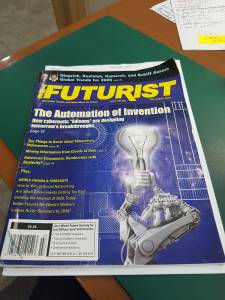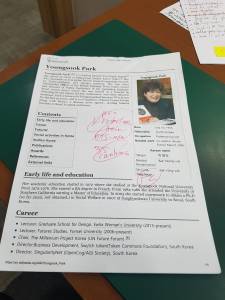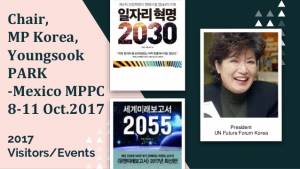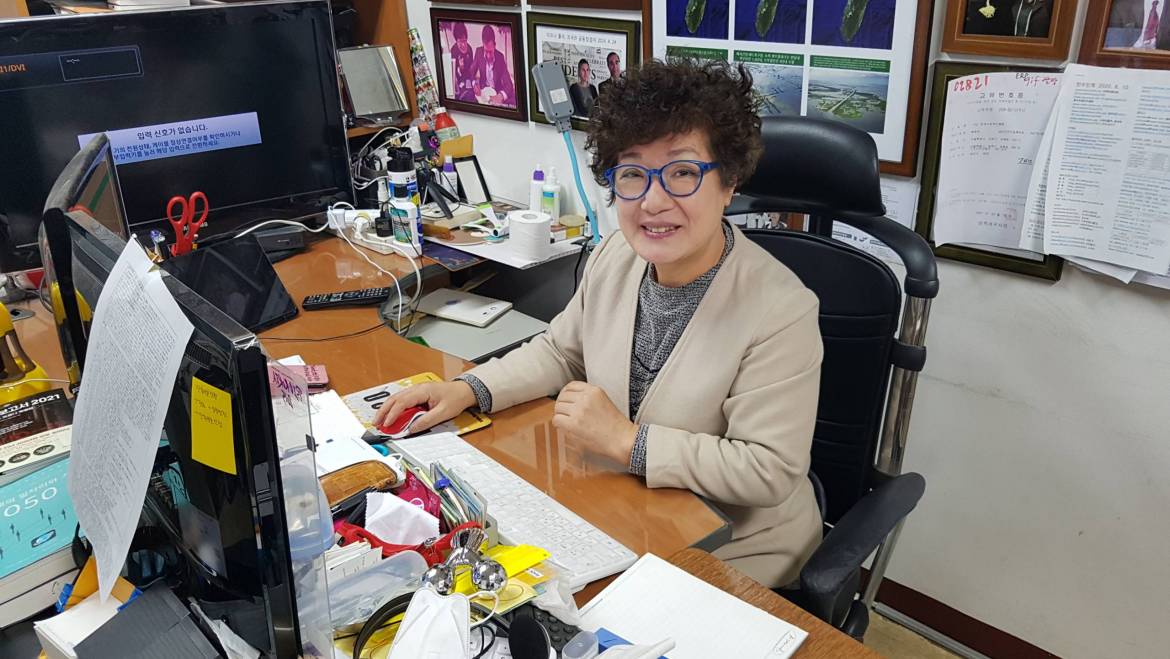A fellow American-Korean named Ron Roman invited me to visit him in Pyeongtaek last month. He first got here in 1977. We had a nice time, and our discussion ranged over many topics. One was our mutual love of reading.
A few days later, Roman called and mentioned yet another American-Korean, Eric Harmsen. Harmsen, whose arrival in this country predated Roman’s by one year, also was a bibliophile and wanted to sell  some of his books for a low price. Most pertained to history and other nonfiction matters, so I took the subway from Gangnam Station to Sungshin Women’s University Station and met him.
some of his books for a low price. Most pertained to history and other nonfiction matters, so I took the subway from Gangnam Station to Sungshin Women’s University Station and met him.
Roman and Harmsen, both of whom served in the U.S. military and have multiple degrees, are interesting people, but Harmsen’s wife is no less so. Park Youngsook was at her desk that night, typing on her keyboard in a febrile manner. While our meeting was brief and perfunctory, one look at the walls of her office showed that this was a woman who has done some impressive things. Even as I was perusing Harmsen’s books upstairs (I bought 18), he had told me about her.
“My wife is involved in many issues,” he said. “She is always writing books, making videos, giving  lectures and doing some kind of social activism. But her main focus is the future, studying the future and what life will be like in the next decade, the next century or long after that.”
lectures and doing some kind of social activism. But her main focus is the future, studying the future and what life will be like in the next decade, the next century or long after that.”
After lugging a box of books to my home south of the Han River, I sat down and did a bit of research. Professor Park has a Wikipedia page—something I have unsuccessfully sought for the last three years—and has indeed forged a remarkable career as an educator and “futurist.”
A native of Daegu, she graduated from Kyungpook National University in 1976, got a master’s degree from the University of Southern California and did everything except write her dissertation in a doctoral program at Sungkyunkwan University. Since I am such a respecter of academic credentials, I wondered why she did not take the last step and add those three magical letters “p,” “h” and “d” to her name.
“I decided it was not important,” she stated. “I had other things to do. There are lots of people in Korea with doctorates, many of whom are doing meaningless jobs.”
Park, it seems, never stops. She runs a think tank affiliated with the United Nations, she lectures at Yonsei University, she has written 50 books and countless articles, she has nearly 24,000 subscribers to her YouTube channel, she has worked as an information officer in the British and Australian embassies, and she has given speeches and organized conferences.
her YouTube channel, she has worked as an information officer in the British and Australian embassies, and she has given speeches and organized conferences.
She writes and speaks about the future or “futures,” as they say in this field. Park is among an international group of academics and other brainy people who engage in the systematic, interdisciplinary and holistic study of social and technological advancement. They explore how people will live and work in the short-, medium- and long-term future. Although futurology is sometimes derided as a pseudoscience, Park and her colleagues do much more than gaze into crystal balls.
Aware that their perspective tends to be global, I nevertheless asked Park to narrow it down to four topics regarding Korea. The first was COVID. “The long-term impact I see of this pandemic is that there will be much more remote working,” she said. “But we lack the technology, like ZOOM, to sell to other countries. Because we were so good at tracking COVID cases, there were no major lockdowns. So we have fallen behind in this crucial field.”
I told her about my recent Korea Times article on this country’s frightening demographic future. “Yes, we have a terribly low birth rate,” Park said. “Korea as we know it will vanish by 2300, and there will be just a remnant of 5,000 or so actual Koreans.”
This bright and opinionated woman was soon on to another topic. “People don’t like change, but technology forces them to change,” she said. “People were suspicious about the internet and mobile  phones at one time, and they had no choice but to adapt. Artificial intelligence is the basis, as it will reset just about everything. Google will go downhill because it is full of advertisements. There is nothing like that in AI. Education will also be reset.”
phones at one time, and they had no choice but to adapt. Artificial intelligence is the basis, as it will reset just about everything. Google will go downhill because it is full of advertisements. There is nothing like that in AI. Education will also be reset.”
Finally, any thoughts on South Korea-North Korea relations? “If the balloon project is successful, the people up there will get Wi-Fi and learn about the rest of the world,” she asserted. “Although it will take some time, they will realize that Kim Jong-un is a dictator and kick him out or at least stop obeying him. I predict a mass exodus. But futurists like me, we say countries and borders will become obsolete and eventually disappear.”


4 Comments
I don’t pay attention to such people nor their predictions. Example, countries without borders is a new one, is she foreseeing a “one world order”? Mass exodus of people from North Korea seems unrealistic given the border patrol you have seen when you launch balloons annually at the North Korean border. Lasting changes due to COVID is cogent, well I’ll give her that one.
to be clear, I like the aspect of analyzing trends in social, economic, political, environmental, etc. arenas in order to prepare and adjust the course of one’s business and country plans. I am pretty sure that major corporation have financial planners/prognosticators to help with this effort. Corporations need a 5 year and a 10 year plan to stay healthy, wouldn’t you agree. So, maybe she has a few outlandish predictions, so what, she is a think tank that is a catilyst for the analyst.
Yes, several of her comments seemed unlikely to me as well. These “futurists” do not all agree.
She had me until the no border thing!
Really…
Add Comment